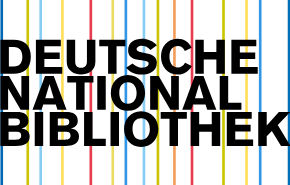PRINCIPLES AND PRACTICES OF LANGUAGE TESTING
DOI:
https://doi.org/10.55640/Keywords:
Assessment, language proficiency, evaluation, feedback, effective testing, practicality, reliability, validity, authenticity, washback.Abstract
The evaluation and assessment of language proficiency represent a complex yet essential dimension of language education. While the process demands meticulous planning and implementation, it plays a crucial role in shaping learners' academic trajectories. Traditionally regarded as fundamental elements of language acquisition, testing and evaluation serve not only as tools for measuring linguistic progress but also as mechanisms for enhancing student performance. Through systematic feedback and well-structured assessment practices, educators can foster meaningful learning outcomes and support the overall development of language competencies.
Downloads
References
1.Aripova, G. T. (2021). LINGUISTIC APPROACH IN CREATING BILINGUAL MUSIC DICTIONARY. Актуальные научные исследования в современном мире, (1-6), 11-14.
2.M.R.Abdullayeva. FORMATION OF ALTERNATIVE VARIANTS IN THE PROCESS OF ARTISTIC TRANSLATION (ON THE EXAMPLE OF A WORK OF “SUCH IS LIFE”). (2025). International Journal of Artificial Intelligence, 5(04), 1287-1291.
3.Aripova, G. T. (2018). ADULTS TEACHING ENGLISH IN THE SPHERE OF ART AND CULTURE. In Язык и культура (pp. 72-81).
4.Brown, H. D. (2004). Language Assessment: Principles and Classroom practices. NY: Pearson Education.
5.Malcolm, M., & Steve, T.N. (2006). Destination B2 Grammar & Vocabulary. Macmillan Education.
6.Abdullayeva, M., & Bekmahammadova, F. (2025). INGLIZ TILINI O'RGANISHDA SUNIY INTELLEKTDAN FOYDALANISH. PEDAGOGIK ISLOHOTLAR VA ULARNING YECHIMLARI, 12(01), 136-137.
7.Mousavi, S. A. (2009). An encyclopedic dictionary of a language testing (4th Edition). Tehran: Rahmana Publications.
8.Brown, D. H. (2010). Language assessment: Principle and Classroom Practices (2nd Edition). White Plains, NY; Longman Pearson 9780138149314
9.Isakov, A. . (2025). О‘ZBEK VА INGLIZ TILLАRIDАGI UNLILАRDА FОNОLОGIK INTERFERENSIYА ОMILLАRI. Инновационные исследования в современном мире: теория и практика, 4(5), 17–20. извлечено от https://in-academy.uz/index.php/zdit/article/view/44676
10.Green, A. (2014). Exploring Language Assessment and Testing. NY. Routledge.
Downloads
Published
Issue
Section
License

This work is licensed under a Creative Commons Attribution 4.0 International License.
Authors retain the copyright of their manuscripts, and all Open Access articles are disseminated under the terms of the Creative Commons Attribution License 4.0 (CC-BY), which licenses unrestricted use, distribution, and reproduction in any medium, provided that the original work is appropriately cited. The use of general descriptive names, trade names, trademarks, and so forth in this publication, even if not specifically identified, does not imply that these names are not protected by the relevant laws and regulations.






